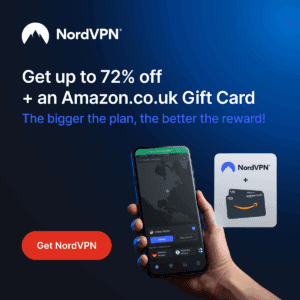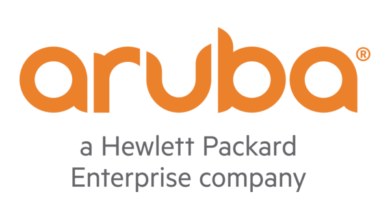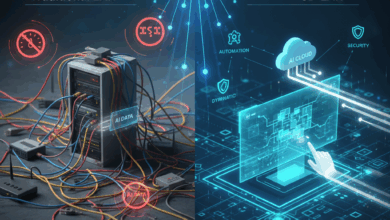The UK Online Safety Act VPN Providers Are Winners
Why VPN Providers Are Emerging as Key Winners
The UK’s digital world changed fundamentally. The full Online Safety Act (OSA) came into force. Many called it landmark legislation. They aimed to make the UK safest online.
This especially targets children. Yet, it created a surprising effect. Demand for Virtual Private Network (VPN) services surged. At ZeroTrust Networks, we identify these trends.
Secure Your Personal Browse Anywhere with NordVPN
We see profound impacts. This change shapes digital identity. It impacts personal protection. VPN providers find themselves benefiting. They are strong in this new era. This highlights the importance of a VPN for UK Online Safety Act navigation.
The Act’s Core Purpose
The Online Safety Act’s main goal is clear. It compels online platforms. This includes social media. It covers search engines and adult content. These platforms must take more responsibility. This covers all content on their services. Ofcom now holds great power. This UK regulator now levies huge fines. Penalties reach £18 million. Or they hit 10% of global revenue. Senior executives face criminal liability. This applies for non-compliance.
Mandatory Age Verification
A cornerstone of this new regime demands age verification.
This applies to adult content websites. It primarily protects children. This moves beyond simple checkboxes.
It requires intrusive methods. This includes facial estimation. Photo ID matching is another method. Banking or mobile provider checks also feature.
These measures affect access to content. They directly impact many online services.
Privacy and Identity Risks
The Act’s protective intentions are commendable. Everyone agrees on protecting children online. However, the Act’s practical implications worry many. Its broad scope raises significant concerns. Strict age verification poses new risks. Civil liberties groups voice these concerns.
Privacy advocates also speak out. Some industry experts share their fears. They believe it sets a dangerous precedent. The debate extends beyond illegal content. It includes “legal but harmful” content. Many fear over-censorship. This could harm free speech.
The issue lies in verification methods. Users prove they are over 18. They increasingly submit sensitive personal data. They might upload government ID. They take a live selfie. This uses facial recognition software. Or they link financial information.
These methods create data. They necessitate vast, central databases. These hold personally identifiable information. Such databases attract cybercriminals.
History shows many data breaches. Retailers suffer them. Even government entities face them. This sensitive data risks compromise. It could lead to identity theft.
Blackmail or private habit exposure could occur. This represents a profound privacy nightmare. A VPN for UK Online Safety Act use helps reduce this.
Government Control and Loss of Anonymity
This mandated identity verification shifts control. It moves power from individuals. It places it with online platforms. By extension, it empowers the government regulator. Your online content access becomes conditional. You must prove your age. You implicitly link your real identity online. This creates a digital identity system. It serves surveillance and control. It potentially erodes anonymity. Many value anonymity for good reasons. They explore sensitive topics. They seek discreet support. They express themselves freely. This avoids fear of repercussions. The government now compels verification. This applies to general adult online access. It expands state power over digital lives.
Why Public Wi-Fi Dangers Matter
Understanding everyday risks is vital context. Public Wi-Fi networks are often unsecured. They pose immediate threats. Without security, your data remains exposed. Cybercriminals actively “eavesdrop” on traffic. They capture login credentials. Banking details are at risk. Personal messages also face threats. Sensitive files can be intercepted. This highlights a general online vulnerability. Individuals already seek to mitigate this. This behavior directly relates to the Act’s broader concerns.
Everyday Digital Threats Explained
Data snooping stands out as a risk. Without encryption, your traffic lays bare. Malicious actors simply observe. They collect everything you send. Hackers also perform “Man-in-the-Middle” attacks. They position themselves between you and a website. They secretly relay your communications. They can even modify them. You believe you talk to a trusted source. You actually interact with an attacker.
Malicious hotspots also proliferate. These fake Wi-Fi networks look legitimate. They trick users into connecting. This grants attackers direct access. They inject malware. They launch ransomware attacks. They perform data exfiltration. The allure of “free Wi-Fi” can be costly. These everyday risks reinforce user desire. They want greater digital control. The new UK legislation amplifies this.
A VPN as Your Digital Shield
This is where a Virtual Private Network (VPN) becomes essential. For individuals, a VPN acts as a personal “Zero Trust” shield. It creates an encrypted tunnel. This protects all internet traffic. It transforms risky public Wi-Fi. It creates a secure Browse experience. This happens regardless of network insecurity. It is a proactive, personal step. It applies the “never trust, always verify” ethos. It keeps your digital footprint private. It ensures sensitive information stays secure. It empowers your personal digital security.
How a VPN Protects You
When you use a VPN, protection activates. Your connection benefits from strong encryption. This uses modern cryptographic protocols. If hackers intercept your connection, they see scrambled data. Your digital communications remain private. They shield from prying eyes. Intercepted data becomes useless. Your original IP address is masked.
The VPN server provides a new IP. This adds anonymity. It makes tracking harder. You avoid being traced. This enhances your privacy. You gain protection from malicious hotspots. Your data encrypts before leaving your device. It stays safe within the VPN tunnel. Attackers relying on unencrypted traffic fail. A VPN for UK Online Safety Act usage provides this fundamental digital autonomy.
Top Personal VPNs for UK Users
This changing landscape makes VPN choice critical. UK residents want to preserve privacy. They seek control over online identity. Many VPN options exist. Some providers consistently stand out. They prioritize privacy and security. They offer reliable performance. For those navigating the UK Online Safety Act, a premium VPN helps. It offers a prudent step for digital protection. Finding a suitable VPN for UK Online Safety Act protection is vital.
NordVPN remains a top personal choice. It boasts robust encryption. Its server network is extensive. It enforces a strict no-logs policy. NordVPN offers speed and security. It appeals to a broad user base. Its user-friendly interface helps new users. It simplifies online identity protection.
ExpressVPN is another highly regarded option. Users praise its exceptional speed. It offers unwavering reliability. It has strong privacy features. ExpressVPN prides itself on audited no-logs. It uses advanced security protocols. Many users prioritize top performance. They choose it for ironclad data protection. It seamlessly bypasses geo-restrictions. This includes new regulatory impositions. It ensures a truly open internet experience.Proton VPN completes our top three list. This provider emphasizes privacy and security. It often exceeds industry standards. Based in Switzerland, it benefits from strong privacy laws. Proton VPN offers advanced features. These include Secure Core architecture. This routes traffic through multiple servers. It enhances protection. It also commits to full transparency. This makes it ideal for high privacy demands. It helps users maintain anonymity. This applies especially in a newly regulated landscape.
The Act’s Impact: Identity, Control, and Digital Future
The surge in VPN for UK Online Safety Act usage speaks volumes. It powerfully testifies to the value individuals place on their digital identity. It shows their desire to retain control. Governments enacting broad identity verification legislation face a challenge. They inadvertently create demand for bypass tools. This happens when benefits do not outweigh privacy costs. It highlights a fundamental tension. This exists between state regulation and individual rights. It pits privacy and anonymity against control.
As we move forward, the online safety debate will surely continue. However, VPN providers emerge as clear winners. They offer a tangible solution. They help those feeling digital sovereignty eroded. They provide a means to reclaim control.
This happens in an increasingly regulated online world. For businesses operating here, understanding these trends is crucial. They reflect broader societal concerns. These include data privacy and government oversight. The digital landscape is not static.
It constantly negotiates regulation and individual freedom. Tools like VPNs play an increasingly central role. The message resonates clearly. When control becomes centralized, individuals seek decentralized ways. They protect their identity. They maintain digital autonomy. This dynamic defines the ongoing digital revolution.
Building a Robust Zero Trust Culture: A Holistic Approach for Your Business
The lesson from your personal Wi-Fi habits is powerful. Implicit trust represents a significant vulnerability. This applies to personal and corporate settings.
Your organisation cannot afford implicit trust. This includes any user, device, or application. This holds true inside or outside your perimeter. The shift from traditional security models is essential. Those models implicitly trust everything inside. This marks a fundamental change in philosophy. It is a necessary evolution.
By promoting excellent personal security practices among employees, you build foundations. Encourage using a VPN for UK Online Safety Act implications. This applies to general public network use. You subtly lay groundwork for a secure mindset.
This crucial cultural shift benefits your workforce. Every employee understands their security role. This collective understanding, combined with robust Zero Trust solutions, proves instrumental. It builds a resilient, adaptive, and future-proof security posture. It empowers your workforce with a security-first mentality.
This extends from individual habits. It reaches organizational architecture. It ensures every access request is verified. Every device is validated.
Every data flow remains robustly protected. This comprehensive approach defines true modern security. It operates in a world without traditional perimeters. It makes your organization far more resistant to threats.




